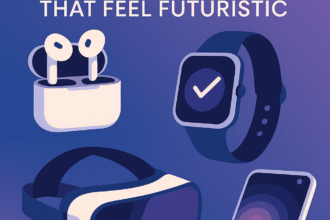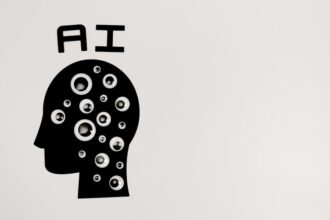For decades, the world of computing has been driven by a single question: how can we make machines faster, smaller, and more powerful? Moore’s Law, the principle that computing power doubles roughly every two years, has fueled extraordinary progress in traditional computing. But as transistors approach the limits of physics, we’re entering a new frontier: quantum computing.
Unlike classical computers, which rely on binary bits (0s and 1s), quantum computers harness the strange principles of quantum mechanics to solve problems once thought unsolvable. If successful, they won’t just be faster—they’ll fundamentally change how we approach everything from medicine to finance, climate modeling to cybersecurity.
So, what is quantum computing, how does it work, and why does it matter? Let’s break it down.
What Is Quantum Computing?
At its core, quantum computing is a radically different way of processing information. Instead of bits, which can only be 0 or 1, quantum computers use qubits. Thanks to quantum principles like superposition and entanglement, qubits can exist in multiple states at once and influence each other instantly.
- Superposition: A qubit can be 0, 1, or both simultaneously.
- Entanglement: Qubits can be linked, so changing one instantly affects the other, no matter the distance.
This means that while a classical computer might have to test millions of possibilities one by one, a quantum computer can process many possibilities at once—making it exponentially more powerful for certain problems.
Why Classical Computers Can’t Keep Up
Classical computers are incredible, but they follow a linear process. Take encryption as an example: cracking a modern 256-bit key would take classical supercomputers billions of years. A quantum computer, however, could potentially solve it in hours.
This doesn’t mean quantum machines will replace laptops or smartphones. Instead, they’ll excel in specialized, complex problems that stump traditional computing.
The Potential of Quantum Computing
Quantum computing’s promise spans across industries:
1. Medicine & Drug Discovery
Designing new drugs often requires simulating molecules at the atomic level—a task too complex for today’s computers. Quantum computing could model molecular interactions precisely, accelerating cures for cancer, Alzheimer’s, and rare diseases.
2. Climate & Energy
Quantum models could simulate climate systems with unprecedented accuracy, helping us understand and mitigate global warming. They could also optimize renewable energy grids and design more efficient batteries.
3. Finance
Banks and hedge funds could use quantum computing for risk modeling, fraud detection, and portfolio optimization. Markets are chaotic, but quantum algorithms could make them more predictable.
4. Artificial Intelligence
Machine learning relies on pattern recognition and optimization, both areas where quantum computing could supercharge progress. Imagine AI that learns exponentially faster than today’s systems.
5. Cybersecurity
Quantum computing is a double-edged sword here. On one hand, it could crack current encryption. On the other, it could also enable quantum-safe encryption, protecting sensitive data for decades to come.
The Challenges Holding It Back
For all the excitement, quantum computing isn’t ready for daily use yet. Major challenges include:
- Error Rates: Qubits are incredibly sensitive and prone to errors.
- Stability: Maintaining “quantum states” requires extreme conditions like near-absolute-zero temperatures.
- Scalability: Today’s quantum computers only operate with dozens or hundreds of qubits. Experts say we’ll need millions for large-scale use.
- Accessibility: Building and maintaining quantum systems is incredibly expensive.
This is why current systems are known as “Noisy Intermediate-Scale Quantum (NISQ)” computers—powerful but not yet practical for solving humanity’s biggest problems.
Who’s Leading the Race?
The race for quantum supremacy is global, with governments and tech giants investing billions. Some of the key players include:
- IBM Quantum: Offering cloud-based quantum computing platforms.
- Google Quantum AI: Famously claimed quantum supremacy in 2019.
- Microsoft Azure Quantum: Focused on making quantum tools accessible for developers.
- D-Wave: Specializing in quantum annealing for optimization problems.
- China & EU initiatives: Both regions are pouring massive investments into national quantum strategies.
What This Means for You
You might wonder: if quantum computers aren’t replacing smartphones anytime soon, why should you care?
The truth is, quantum computing won’t directly affect your daily browsing or texting. But it will shape the world you live in:
- Medical breakthroughs could extend lifespans.
- Financial systems could become more stable (or more volatile).
- Cybersecurity could undergo a revolution.
- Climate solutions could become more effective.
In other words, the ripple effects will touch everyone, even if we never use a quantum computer directly.
Timeline: When Will Quantum Computing Change Everything?
- 2025: Early commercial applications in niche industries like logistics and chemistry.
- 2030: More advanced machines solving meaningful real-world problems.
- Beyond 2035: Large-scale, fault-tolerant quantum computers potentially reshaping global industries.
The timeline is uncertain, but the momentum is undeniable.
Quantum computing isn’t just another step in technology—it’s a paradigm shift. While 5G, AI, and cloud computing improve existing systems, quantum computing reimagines what’s possible. It challenges the very foundations of computing, opening doors to discoveries and solutions that classical machines could never achieve.
Yes, the road ahead is filled with challenges, but the destination could redefine our future. If quantum computing lives up to its promise, it won’t just change everything—it could change the way we think about everything.
Key Takeaways
- Quantum computing uses qubits, which leverage superposition and entanglement.
- It excels in complex problems classical computers can’t handle, like drug discovery and climate modeling.
- Industries poised for disruption include healthcare, finance, energy, AI, and cybersecurity.
- Challenges remain: error rates, stability, scalability, and cost.
- The timeline is gradual, but major impacts are expected within the next two decades.








